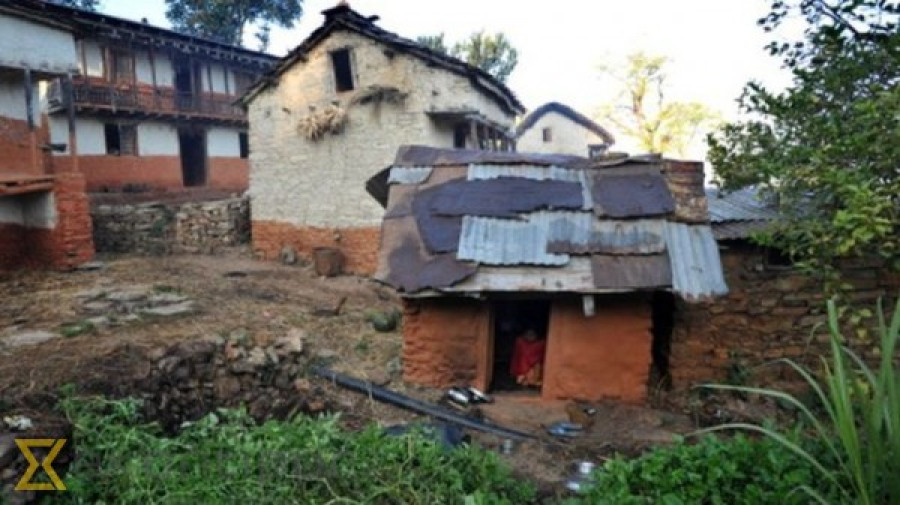National
Bajhang women sceptical about effective implementation of law
More than a decade after the Supreme Court ruled against Chhaupadi, an ancient Hindu practice that banishes women during menstruation and after childbirth, Parliament on August 9 enacted a new law criminalising the centuries-old custom. The move was hugely welcomed by rights activists
Basant Pratap Singh
More than a decade after the Supreme Court ruled against Chhaupadi, an ancient Hindu practice that banishes women during menstruation and after childbirth, Parliament on August 9 enacted a new law criminalising the centuries-old custom. The move was hugely welcomed by rights activists.
The practice is prevalent in Hill districts of mid- and far-western regions. But many women in Bajhang said they are still sceptical about effective implementation of the law.
“There is no doubt that Chhaupadi is an inhuman practice that discriminates against women. But I wonder whether girls and women can file cases against their parents,” said Sunita Bhandari, a student, in an indication that it is so deeply entrenched in the culture in many communities that people still believe failing to follow the custom could mean some harm will befall the family.
The tradition calls for sending women during menstruation and after childbirth to cattle sheds, as they are considered “impure” hence are not allowed to enter the kitchen or touch the family members.
Even rights activists who have long been advocating against the practice doubt effective implementation of the law. “The new law criminalising Chhaupadi is a positive step. But I don’t think girls and women subjected to the practice can stand against the family—their parents, in-laws or husbands,” said Jayanti Joshi, chairperson of Women Rights Forum in Bajhang.
Rights activists have long been calling for “finding out the root cause of the problem” and voicing for massive awareness campaigns, especially about menstrual hygiene and reproductive rights.
“That the fact Chhaupadi is a crime has been established in itself is a huge achievement. But given the level of awareness and social and economic status [of the people] here, it is difficult to say how practical it can be in immediate future,” said Mohan Daulyal, a law practitioner.
Nepal Bar Association Bajhang President Prithvi Bahadur Singh also laid stress on raising awareness “to root out the scourge of Chhaupadi that has been prevalent for centuries”.
As per the new law, anyone forcing a woman to follow the custom will be liable to a three-month jail sentence or Rs 3,000 fine or both.
It is estimated that there are about 25,000 Chhaupadi sheds in Bajhang where there are 33,000 households.
Reports by various social organisations show that about 99 percent women in the district still practise Chhaupadi which have on occasions even led to deaths. A woman banished to cattle shed during menstruation had died in Bajhang two years ago. Many believe several other deaths while practising Chhaupadi often go unreported.
There have also been reports of girls and women being subjected to sexual violence while forced to practise Chhaupadi.




 9.89°C Kathmandu
9.89°C Kathmandu














